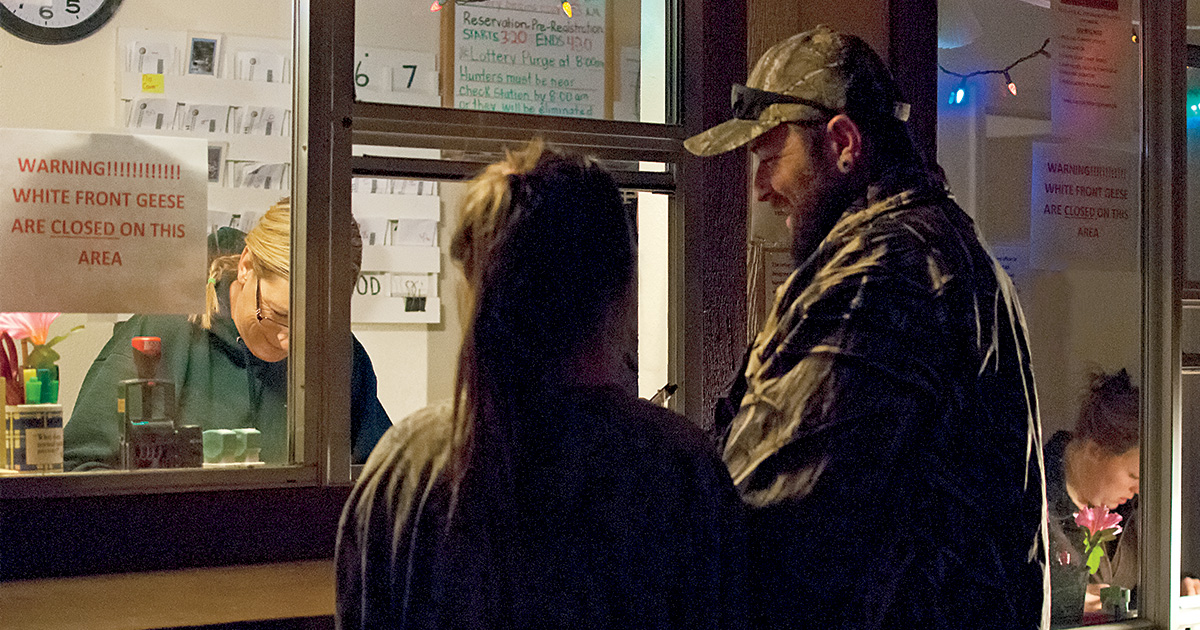Waterfowler's Journal: Luck of the Draw
Lottery hunts can be a great way to experience top-notch waterfowling on a budget
Lottery hunts can be a great way to experience top-notch waterfowling on a budget


Draw hunts are designed to help spread the wealth among public-land waterfowl hunters while offering a quality experience.
Some of the best duck hunting in the country can still be found on public land, but good hunting opportunities typically come with increased pressure and competition. To help manage the crowds and create better hunting experiences, many states have implemented lottery systems, in which hunters enter drawings for the chance to hunt intensively managed habitats.
John Darling, a wildlife technician for the Michigan Department of Natural Resources, oversees 3,355-acre Harsens Island at St. Clair Flats State Wildlife Area, which is one of the best-known public waterfowling spots in the region. It’s only about an hour’s drive from the Detroit metro area, and lots of people, including many from out of state, make the trip to hunt there. Due to high demand, drawings are held to allocate hunting opportunities.
“We average 35 parties per draw. Almost all the drawings are done in person on the day of the hunt, but we offer some preregistered hunts for opening weekend,” Darling says. “Our system is very popular with hunters.”
As is the case on many intensively managed public areas, waterfowlers at Harsens Island are limited to 25 shells per person. Spinning-wing decoys are not allowed, but jerk strings and swimmers can be used. The hunting is pretty good too, with a recent success rate of more than one duck per hunter per trip over the course of the season, and a total bag of 8,000 to 10,000 birds taken annually.
Ballard Wildlife Management Area (WMA) in western Kentucky is another popular draw-hunt area, and one that I’ve hunted several times myself. Situated near the confluence of the Ohio and Mississippi Rivers, Ballard County is the best-known waterfowl hunting area in the Bluegrass State. The 8,000-acre WMA is managed by the Kentucky Department of Fish and Wildlife Resources, and it offers a variety of hunting opportunities in different habitat types.
Unlike Harsens Island, Ballard WMA isn’t hunted every day, and hunters must apply prior to the season for their preferred dates. It can take a couple of years to get drawn, but unsuccessful applicants are awarded a preference point for the next year’s drawing. Hunters who are drawn typically get two days to hunt, and they must show up before dawn each morning to enter a secondary drawing with other successful applicants to choose hunting spots. Since hunters who draw a spot can bring guests, it’s possible for people within the same hunting party to get drawn for different dates, giving everyone in the group a chance to hunt on several days.
While hunters were restricted to designated blinds at Ballard in the past, groups of hunters are now allowed to move around units as long as they stay together. “Some of our units are boat-in and some are walk-in, and you never know what you’re going to get,” says Richard Campbell, wildlife management foreman at Ballard WMA. “We recommend hunters show up prepared with whatever gear they might need.”
At Ballard and many other WMAs, standby hunting can also be an option for hunters who don’t get drawn. When hunters with reservations don’t show up or arrive too late to check in, their unclaimed spots are pooled into a secondary drawing for standby hunters. Campbell says that when the hunting is good and the word is out, few standby spots are available, but at slower times, some units go unclaimed.
Of course, those are just a few examples of the hunting opportunities available on public lands that are managed via drawings. Many areas, including Ballard and Harsens Island, also have special draws for youth hunts. And while the nationwide trend may be of declining hunting participation, Darling says that isn’t the case at Harsens Island. “We have a core group of local veteran duck hunters who are here a lot,” he says. “But especially since 2020, it seems like there are more new faces here than ever before. We attract new duck hunters every year.”
While getting drawn for a hunting spot at your local WMA might not be as lucky as winning the lottery, if the weather is right and the ducks are flying, it might be the next best thing.
Ducks Unlimited uses cookies to enhance your browsing experience, optimize site functionality, analyze traffic, and deliver personalized advertising through third parties. By continuing to use this site, you agree to our use of cookies. View Privacy Policy